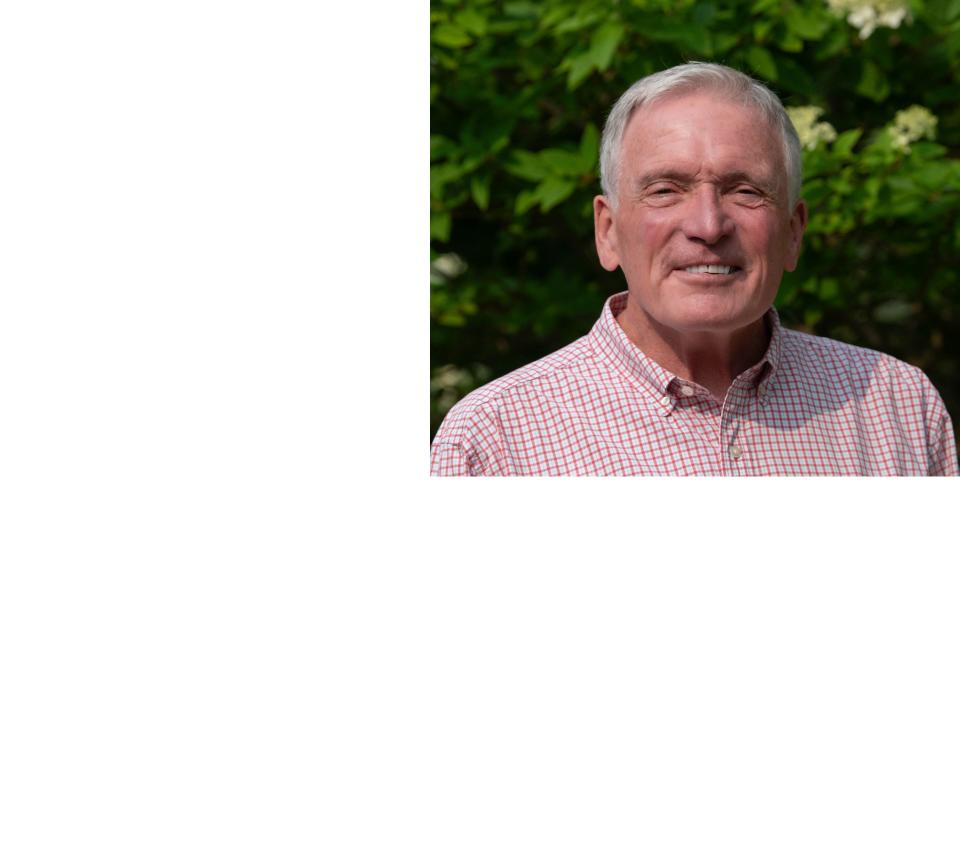Douglas Brouwer: What happened on Oct. 7 was wrong
Let me state, as clearly and unequivocally as I can, that what happened on Oct. 7, only one month ago, was wrong.
Killing 1,400 people and kidnapping more than 200, including scores of civilians, cannot be justified. The killing of babies and old people was even more monstrous, but all of it was wrong, deeply and horribly wrong. The British historian, Simon Sebag Montefiore, writing recently in the Atlantic Monthly, said the attack “resembled a medieval Mongol raid for slaughter and human trophies — except it was recorded in real time and published to social media.”

For some readers, I know from experience, that condemnation will not be strong enough. Others, as I also know from experience, will feel a need to point to the long history of conflict between Israeli Jews and the Palestinians who live in either Gaza or the West Bank. These others will say that neither side in this conflict is blameless. In addition, some Christian friends, who subscribe to a particular end-times theology, will want to explain how all of this, sad as it is, has been foretold and must happen for God’s plan to be fulfilled.
I feel compelled to tell my own story.
The first time I visited Israel and the West Bank was in the mid-'90s. On this particular visit, I was introduced to Arab Christians, whose existence for some reason came as a surprise to me. Christians have been living throughout the Middle East from the beginning of the Christian church. From history classes, I knew something about the Holocaust and the founding of the Israeli state, and like many, if not most, Americans, I understood Israel to be an important development after World War II, a compassionate response to the plight of Jewish people.
If I heard about Palestinians, it was not that they had lived in the land for centuries; it was that they were Muslims. And that many of them were terrorists. What I had never heard was the story of an Arab Christian, a pacifist not a terrorist, who as a child in 1949 watched as his family’s land was seized by Israeli soldiers. His father and older brothers were taken away at gunpoint and sent to refugee camps. He was allowed to say behind with his mother. The person who told me this story — it can also be found in his book Blood Brothers — was Elias Chacour, a Christian pastor who has lived most of his life in the Galilee region of northern Israel. He founded a school for Christians, Jews, and Muslims in the village where he was assigned to be a priest. He recently retired as the Archbishop of Galilee in the Melkite Greek Catholic Church.
Visiting him at the school he founded in the tiny village of Ibillin and hearing him speak for the first time was a remarkable and life-changing experience. His words represented an altogether different point of view from the one I had heard throughout my life. I made sure that I visited Father Chacour on each subsequent visit to Israel. I have been a guest at his home in Ibillin — and later in the Archbishop’s residence in Haifa — and he has been a guest in my home in the U.S. I have read his books and heard his stories. I celebrated each time he was nominated for a Nobel Peace Prize.
My worldview, it is safe to say, has been changed because of meeting and getting to know him; my perspective on Israel and its founding has been enlarged. Israel was no longer a distant country, irrelevant to my life, but a place where I knew people and where those people knew me.
To get to that point, though, I had to do more than ride around Israel on a bus with other pilgrims and listen to a government-approved guide. I had to insist the bus driver take us to Ibillin, and then I had to get off the bus. I had to establish a relationship with someone I didn’t know. I had to be willing to listen to a point of view that was in many ways vastly different from my own.
To be clear, I support the establishment of a homeland for Jews, but I now understand the politics of the region at a different level. Instead of one side of the story, I discovered that there are several sides to the story, and they are not easily integrated or harmonized. In our grief and sadness over what happened on Oct. 7, I hope that we will find a way to listen and engage. It is not too late.
— Douglas Brouwer is a resident of Park Township. Previous columns and other writing may be found at dougsblog.substack.com.
This article originally appeared on The Holland Sentinel: Douglas Brouwer: What happened on Oct. 7 was wrong

